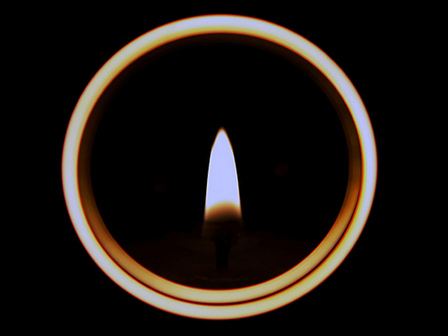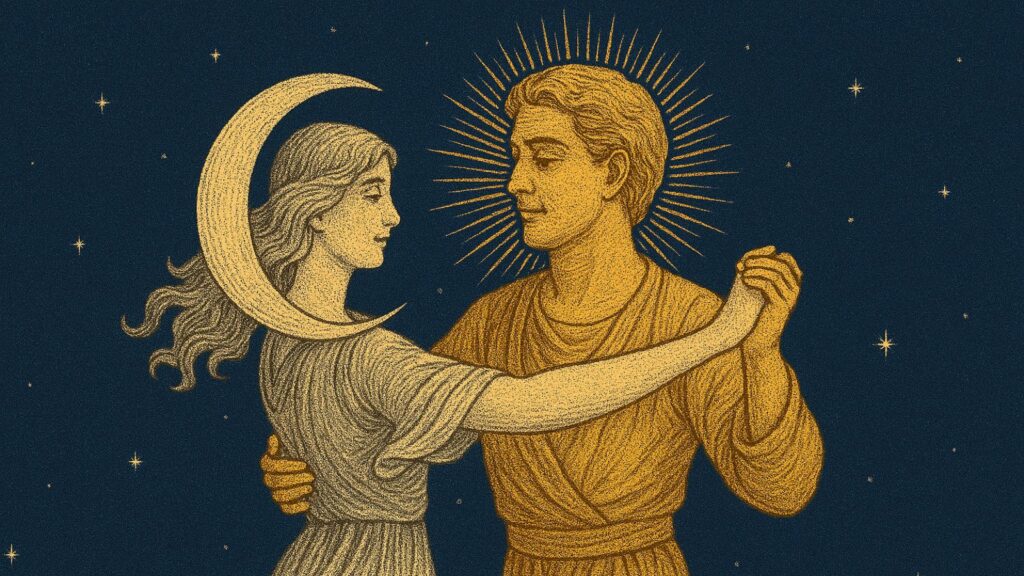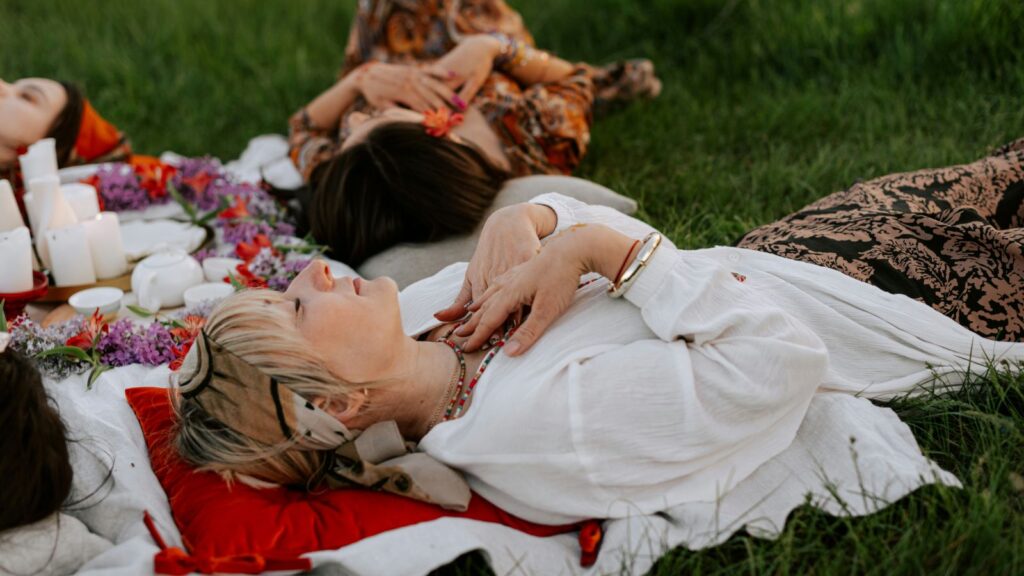The following is excerpted from Awaken Your Genius: A Seven-Step Path to Freeing Your Creativity and Manifesting Your Dreams available from North Atlantic Books
When students would
show up in the Reading Poetry class that I taught for years at the University
of Pittsburgh, they’d usually be taken aback to discover that I think the only
reason to read poetry is to become a poet in the fullest, most sacred sense of
that term–a sense that’s been largely forgotten, both by contemporary academia
and by modern publishing poets.
I would explain to
my class that real poetry is the side effect of poïesis. In ancient Greek,
poïesis meant “making.” What is made in poïesis? The soul. What is the process
of poïesis? It has various names, but in the Western tradition it’s been widely
known as alchemy. This alchemy is a deep work of collective and personal
transformation and evolution. It is the mysterious union of the conscious with
the unconscious, of the pure witnessing faculty of the mind (Shiva) with the
electric energy of the subtle body and heart (Shakti). It’s the way that genius
stops being a source of suffering and becomes a source of joy.
I tell my class
that anything anywhere that we have, any painting or piece of writing or house
or garment or nation that was made by a person or group of people who used the
occasion of making it as a chance to imaginatively work out evolution,
collective or personal, is poetry. It is alive; it has a restless, provoking
energy, a soul of its own. Looking on it, enjoying it, teaching it, reading it,
hearing it, living in it can stimulate our own souls and launch us further on
our own alchemical trip. The result of successful alchemy in any human life is
abiding, grounded, ecstatic bliss; creative potency; and joy.
For my startled
students, it would take a while for it to sink in that I was really talking
seriously about all this crazy stuff–alchemy, genius, electric energy, ecstatic
bliss, and, worst of all, the soul! They’d at first be disturbed to understand
that our course was not devoted to parsing iambs from dactyls but to becoming a
poet in the high- est, deepest, most radical way. That is, it was a course in
becoming one who makes manifest the soul in himself, in others, and in the
world–a course in becoming a person fully alive in the expression of her
genius, fully joyful and illuminated with strength.
Gradually, as the
weeks passed and they discovered that I was really willing to support them on
this undertaking, they would become restless with excitement. They’d be able to
follow me when I suggest that they don’t need to believe in or prove this
notion of soul in order to participate in it–they would get it that soul is
itself a poetic theory, an enabling fiction, something created. That which
creates is that which is created. Should this surprise us?
All this
strangeness is predicated on certain premises I hold:
1. The only reason
to read or write poetry at all is to be helped on your own trip toward becoming
a poet in this strong sense.
2. A poet is not an
insipid person who writes nice verses in the company of polite professors and
gets them published to wide-spread approval in
pretentious magazines.
3. A poet is a
soulmaker. She’s a dynamic force that radically changes the
movement of thought and imagination within her generation. A real poet is a
shaman and a healer, a warrior and a scientist, a philosopher and a living
dream. She might write some verses or she might not. The verses might be
published or they might not. This has exactly no consequence or bearing for the
poet’s actual purpose and mission, which is to bring soul into the world, by
whatever means available and necessary.
It was presumptuous
of me to assume that students who signed up for a course in reading poetry
wanted to do this weird business of becoming a poet in the most profound
sense–after all, reading poetry sounds like a nice, easy, fireside activity.
But becoming a true poet, a lucid dreamer in this life–that is not easy, and
that is not safe at all.
It’s vital,
intimate, demanding, and thrilling work. It’s an adventure into the depths of
the unconscious, into the life force of the body. It’s a descent into the underworld
whose outcome is uncertain.
I operated on the
faith that anyone who wandered into my class- room was there by virtue of a
synchronous alignment and was actually a dreamer ready to pop. In my years of
teaching, I found that I was very largely right. My students came to me
stressed out, hung up, disaffected, sick with worry, cynical, stifled, and
depressed in a thousand ways. Half of them didn’t think they were creative or
imaginative at all and heavily doubted that anything we could do together would
change that.
Yet after a
semester together I would see the overwhelming majority of my students blossom
into poets of real and dazzling power–people capable of stirring and expressing
the deepest levels of imagination in themselves and others. They became
relaxed, confident, capable. They became truly responsible, in that they
learned to be responsive to their own soul.
My basic insight as
a teacher was to recognize that there’s no use in anyone reading the written
stuff called poetry or attempting to write it unless that someone is herself on
a journey of poetic evolution, a journey to become a soulmaker and to stop
suffering.
To start students
on this conscious evolution, I invited them to participate in a course of
adventure that I already mentioned. It’s the one that the famous mythographer
Joseph Campbell observed as the underlying movement in all myth and folktale.
This adventure is widely known as “the hero’s journey,” but as I use it, I
prefer to call it “the mythic journey,” both to denote the lack of gender
specificity of the process and to allow for the adjustments and elaborations I
extend out of Campbell’s work.
When we
consciously, deliberately enter the mythic journey, we begin the work of
joining our conscious with our unconscious, and so we become much more alive to
symbol and metaphor, allusion and story, character and drama–all this stuff is
the stuff of dreams, and it is also the stuff of poetry and myth.
The mythic journey
is a labor of answering our heart’s call to evolve by deliberately engaging
with and taking on the challenges offered by our own unconscious.
It stirs up
stunning synchronicities, omens, and mysterious forces in our lives. It is a
symbolic and imaginative process but not “merely” so–because as we do it, we
find the symbols and the imaginations we meet in our fantasies and dreams
becoming living realities out- side of us.
What Happens Once You Start This Journey
When we dreamers
start to adventure into unknown and magical territory, we become hungry for the
poetry of others, wanting guidance and confirmation that the path we’re walking
can be navigated. We also become
eager to create poetry–in verse or in action. If we’re not actively traveling
this path, the poetry of others and the poetry that we ourselves generate is
dull and irrelevant. Furthermore, we suffer.
What I teach is a
process of becoming a soulmaker. Soulmaking, as John Keats noted, is the work
of creating our unique bliss. In this process, we liberate our creativity and
our joy, our power and our purpose. We become imaginatively rich and
spiritually vibrant.
The interesting
thing about soulmaking is that everyone craves it–an enlarged imaginative
perception of themselves and the world, a deeper emotional connection to their
own hearts and to the hearts of others, a wilder capacity for joy–and yet we
have almost no societally sanctioned space for this endeavor.
Soulmaking is the
rightful province of humanities education, as the depth psychologist James
Hillman pointed out–yet in the present-day scrupulously secular academy, the
word “soul” creates a scandal. Depth psychology itself makes room for it–but
how many people have access to their very own archetypal analyst? In my work as
a teacher, I brought soulmaking back to the secular humanities classroom–and in
the present work, I offer soulmaking to the world at large.
I’ve taught
dreamers of all stripes–budding neuroscientists, engineers, writers, medical
doctors, philosophers, historians, linguists, and mathematicians–and people who
had no notion what they wanted to do. I’ve seen orthodox religious students
undergo ecstatic Whitmanesque spiritual awakenings, stoic premeds unleash tear-
ful emotional breakthroughs, and business-marketing majors write poems that
made me feel as if the top of my head had blown off.
I’ve come to
understand: No matter who you are or what you do, if you’re drawn to the dreamy
side of life and you long to create a better world, you have genius within you
that demands to be brought forth. It is not too weird, too useless, or too
fluffy to go about the labor of transmuting your suffering to ecstasy.
Through my own work
and that of my students I’ve come to see that the soul will have its way with
us, whether we will it or not. Our resistances to the process of undergoing
deep adventure are just our fear and clinging to the surface stabilities of
life.
If you’re clinging
to the surface, if you’re afraid and tired and empty and see no lightning bolts
of passion in your life, it is possible that you can liberate yourself and
those around you by taking up the tools and processes this book offers.
This world, as the
poet John Keats told us, is not a vale of tears. It’s a vale of soulmaking: a
place to flame the little sparks of divinity that we are into roaring fires
capable of our own unique bliss. Keats suggested that we make our souls by
learning to read the terrors of the world through the expansive wisdom of our
hearts. This process is an inevitable one–it can happen very slowly, over a
mil- lion lifetimes, or it can happen right now, in this one, if the work is
undertaken.
The Gift World as the Point of Creativity
It helps me and the
magic people I work with to imagine that the point of doing soulmaking creative
work is to realize the gift world, or heaven on earth, for ourselves and for
everyone else.
What is the gift
world? It’s a subjective experience of life in which your genius is fully
supported and welcomed in its expression, and in which your needs and authentic
preferences are joyously met by a provident universe.
Interestingly, the
subjective experience of the gift world is brought about when you put your
creative power to work in the project of fully supporting the genius of
yourself and others through undertak- ing the mythic journey, and when you seek
to joyously fulfill the preferences of others in a manner that delights you.
So the gift world
is a bit of a paradox. It’s a subjective experience of life that comes about in
part through your making it objectively real for others via your offering of
your gifts. No one can be forced to enter the experience of the gift world,
since participation in it requires deliberate action, but everyone can be
invited to it via generosity, kindness, and the sense of sublime wonder (i.e.,
awesomeness) that our genius manifests through her work. Another way of
thinking about the gift world is that it’s a world that is completely ensouled,
a world where connection, love, warmth, and joy are everyone’s dominant
experiences.
This idea that the
gift world is the real point of all creative work gelled for me when I read on
the American Visionary Art Museum’s website that the most common theme of
visionary art (i.e., cool stuff produced not by trained artists but by people
with a driving need to communicate something from within) is the “backyard
recreation of the Garden of Eden and other utopian visions–quite literally
building heaven on earth.”
When I learned
this, I began to suspect that the reason why my creative conflagration
sometimes sputtered was not because I’ve ever been blocked or because I had a
uniquely wicked childhood but rather because I had mistakenly imagined that the
purpose of creative work was to entertain or impress, when really its purpose
is to make heaven manifest on earth.
I realized I’d been
playing small–and yes, by playing small I mean aiming to get on the best-seller
list or win a Pulitzer. Such goals are dry and dull, because they’re
structurally part of the rather lame universe we habitually participate in–the
one where struggle and competition are normal, where some folks win big while
others lose, where some get to be glamorous artists and authors and others are
confined to drudgery.
Why I'm Not Really into "Art"
I realized that the
reason I’m completely uninterested in most work produced self-consciously as
“art” is that such work tends to con- figure itself in a manner that aims to be
legible within the present system–the mad world. As such, even if it offers to
communicate high ideals, it leaves me rather cold, because such ideals are
betrayed by the very fact that the work presents itself as a cultural commodity
rather than a pure gift.
Too often, this
kind of work lacks an essential generosity–it offers itself for the sake of
being seen and admired rather than for the sake of giving forth love and power
to its receiver.
I reflect, for
example, that one of my most favorite poets, Rumi, gave his poems out wildly
and freely.
Creative work is
most inspiring and most exciting when it offers to freely lead us toward the
realization of our best possibilities. I suggest that if you’ve ever felt in
any way creatively underrealized or blocked, perhaps the source of your
discomfort is that you’ve sought to make something that we will recognize as
valuable “art” within our present condition rather than seeking to make or do
things that call both you and us to our gift nature, our genius–a state where
we are empowered, expanding, free, realized.
On Awesoming Your Life
“Awesome Your Life”
is the name of my blog and also a catchy synonym for awakening your genius. I
consider awesoming your life to be a process of undertaking both daily life and
the mythic journey with a commitment to practicing spiritual principles at
every step of the way. This means cultivating profound honesty, simple
innocence, and intense optimism in both my daily life and my adventures in the dreamworld.
I find that awesoming my life is something that I need to give care and
attention to each day. It’s not something that I ever do perfectly, and it’s
not a project that will ever be finished. I don’t get to wake up one morning
and say, “Done! Life is awesomed. Genius awake. Soul is made. Check! Time for
something else now– perhaps the brutal takeover of a small developing country?”
Instead, I get to
wake up each day in a life that is gaining progressively more awesome steam and
swivel my way through the fog, guided only by my genius and the principles I’ve
just mentioned. Each day I need to find ways to apply those principles in
concrete ways, and each day I need to help others to awesome their lives too,
and to let others help me.
Otherwise, the
awesomeness steam dissipates and my life gradually halts and eventually rolls
backward into the realm of total suck.
How do I know this?
Because I have let my life roll back into suck on many occasions. Things got
good and I decided hey, I don’t really need to be completely honest with myself
and others! Rapidly following upon this decision, my shiny innocence rusts into
a crispy cynical shell; I become overwhelmed by self-centered fear, and all
that throbbing optimism turns into beady-eyed paranoia. Help others? Fool!
Can’t you see I’ve got things to do? The whole world is against me! I have to
compete–compete and win or else be annihilated!
What Happens When I Go Backward?
The really
interesting thing about such a backward roll into crazyland is that my
compromised self-honesty makes it nearly impossible for me to realize on my own
that it’s happening until I hit such a stark, hard low that the thud of my
landing jars me into clarity, or until someone who loves me tells me all about
myself. Happily, over some years of practicing these principles (in a highly
imperfect fashion), I’ve let enough people love me that nowadays I get told all
about myself before I get the distinct displeasure of having to hit a hard low.
What does it sound
like when someone I love tells me all about myself? Well, usually I’ll say
something that evidences in a neat fashion that I’ve been taken over by
self-centered fear. Something like, “I hate my life–everything is too hard,
nothing I do satisfies anyone, and I can’t stand those people.” The person who
loves me will then look at me with compassion, gently point out that actually
I’m the one making everything too hard for myself, the one who’s never
satisfied, and also the one whom I can’t stand–and then, my loving friend will
ask what I intend to do to change that. Ugh. Something in my solar plexus
burns; I feel a little queasy. They’re right–they’re telling me the truth I’ve
been avoiding. The problem with my life isn’t that the world is against me,
it’s that I’m against me–and by extension, I’m against the world.
I don’t know what
it is about me that caused my default setting to become “hateful, self-pitying
fear gremlin.” Probably the manifold shortcomings of my parents coupled with
the ills of society, com- pounded by my innate sensitivity and genius, and also
the innate sensitivity and genius of my parents and of society, compounded by
my manifold shortcomings and ills.
What I mean to say is that there’s no one to single out to
blame for the fact that my life can readily, vigorously slide into suck–and
also that qualities that make us wonderful as human beings individu- ally and
collectively can also make us miserable and dangerous when not used in the
service of spiritual principles.
Teaser image by Mark Turnaukas, courtesy of Creative Commons licens.













